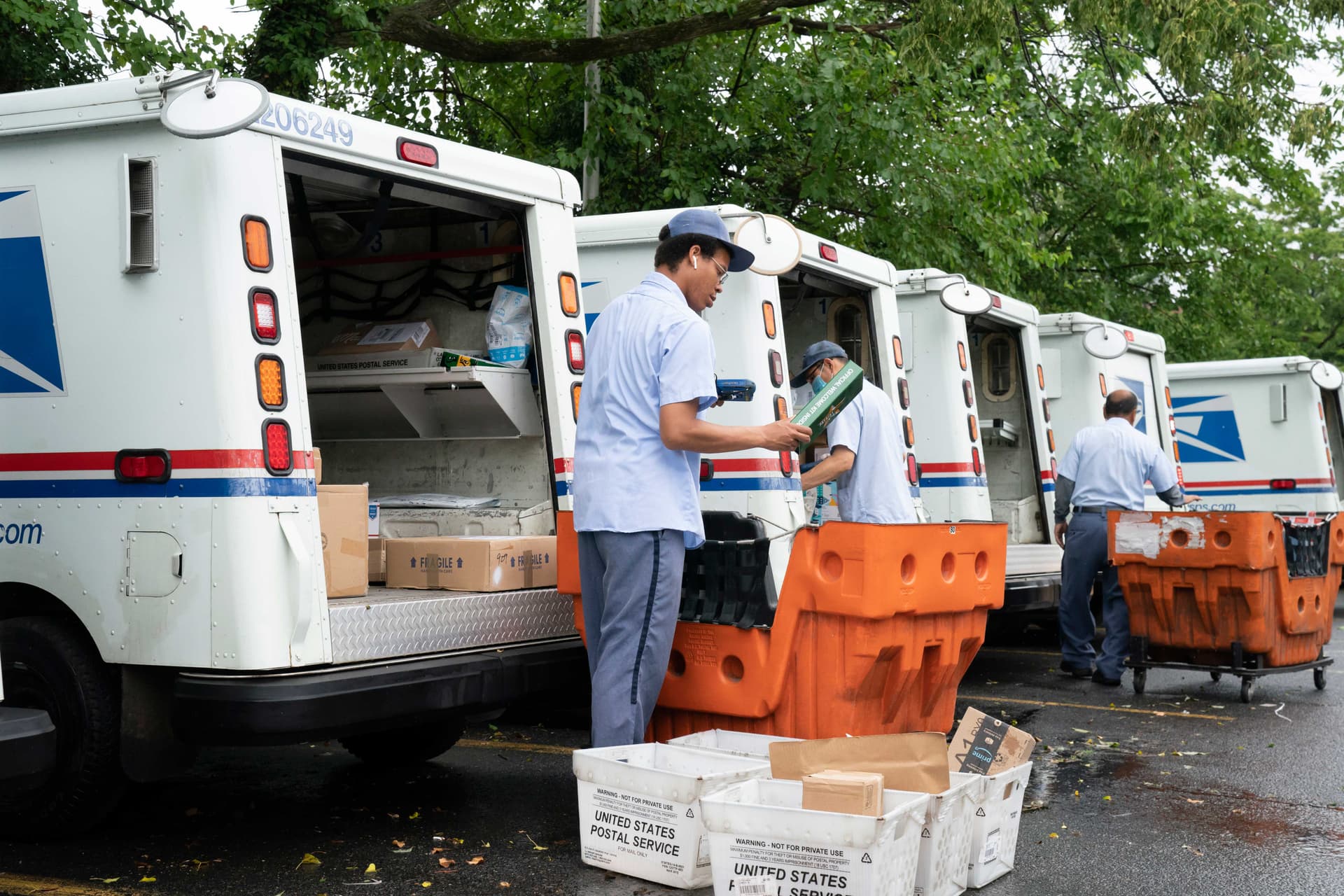SEATTLE (AP) — A U.S. judge on Thursday blocked Postal Service changes that have slowed mail nationwide.
Judge Stanley Bastian in Yakima, Washington, said he was issuing a nationwide preliminary injunction sought by 14 states that sued the Trump administration and the U.S. Postal Service.
The states challenged the Postal Service's so-called “leave behind” policy, where trucks have been leaving postal facilities on time regardless of whether there is more mail to load. They also sought to force the Postal Service to treat election mail as first class mail.
Postal Service spokesman Dave Partenheimer said the organization is reviewing its legal options, but “there should be no doubt that the Postal Service is ready and committed to handle whatever volume of election mail it receives.”
Lee Moak, a member of the USPS Board of Governors, called the notion any changes were politically motivated “completely and utterly without merit.”
Following a national uproar, Postmaster General Louis DeJoy, a major donor to President Donald Trump and the GOP, announced he was suspending some changes — including the removal of iconic blue mailboxes in many cities and the decommissioning of mail processing machines.
But other changes remained in place, and the states — including the battlegrounds of Michigan, Wisconsin and Nevada — asked the court to block them. Led by Washington Attorney General Bob Ferguson, the states said the Postal Service made the changes without first bringing them to the Postal Regulatory Commission for public comment and an advisory opinion, as required by federal law. They also said the changes interfered with their constitutional authority to administer their elections.
At the hearing, Justice Department attorney Joseph Borson sought to assure the judge that the Postal Service would handle election mail promptly, noting that a surge of ballots in the mail would pale in comparison to increases from, say, holiday cards.
He also said slow-downs caused by the “leave behind” policy had gotten better since it was first implemented, and that the Postal Service in reality had made no changes with regard to how it classifies and processes election mail. DeJoy has repeatedly insisted that processing election mail remains the organization's top priority.
“There's been a lot of confusion in the briefing and in the press about what the Postal Service has done,” Borson said.
Voters who are worried about their ballots being counted “can simply promptly drop their ballots in the mail,” he said, and states can help by mailing registration form or absentee ballots early.
Borson also insisted that the states were required to bring their challenge not in court, but before the Postal Regulatory Commission itself — even though by law the commission has 90 days to respond. Bastian rejected that notion, saying there was no time for that with the election just seven weeks away.
The states conceded that mail delays have eased since the service cuts first created a national uproar in July, but they said on-time deliveries remain well below their prior levels, meaning millions of pieces of mail that would otherwise arrive on-time no longer are.
The states suing are Washington, Michigan, Wisconsin, Nevada, Colorado, Connecticut, Illinois, Maryland, Minnesota, New Mexico, Oregon, Rhode Island, Vermont and Virginia.
Pennsylvania is leading a separate multistate lawsuit over the changes, and New York and Montana have filed their own challenges.
